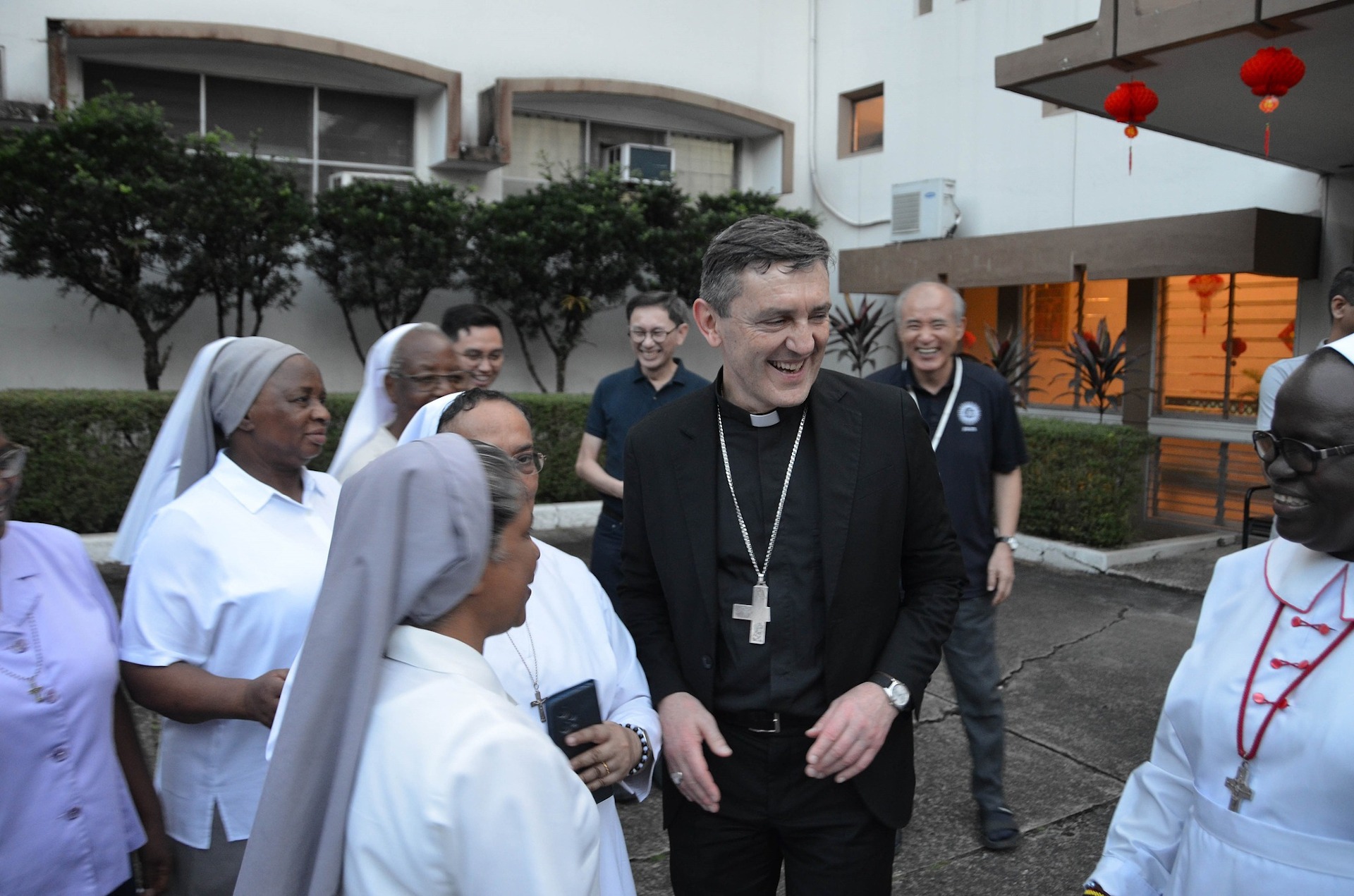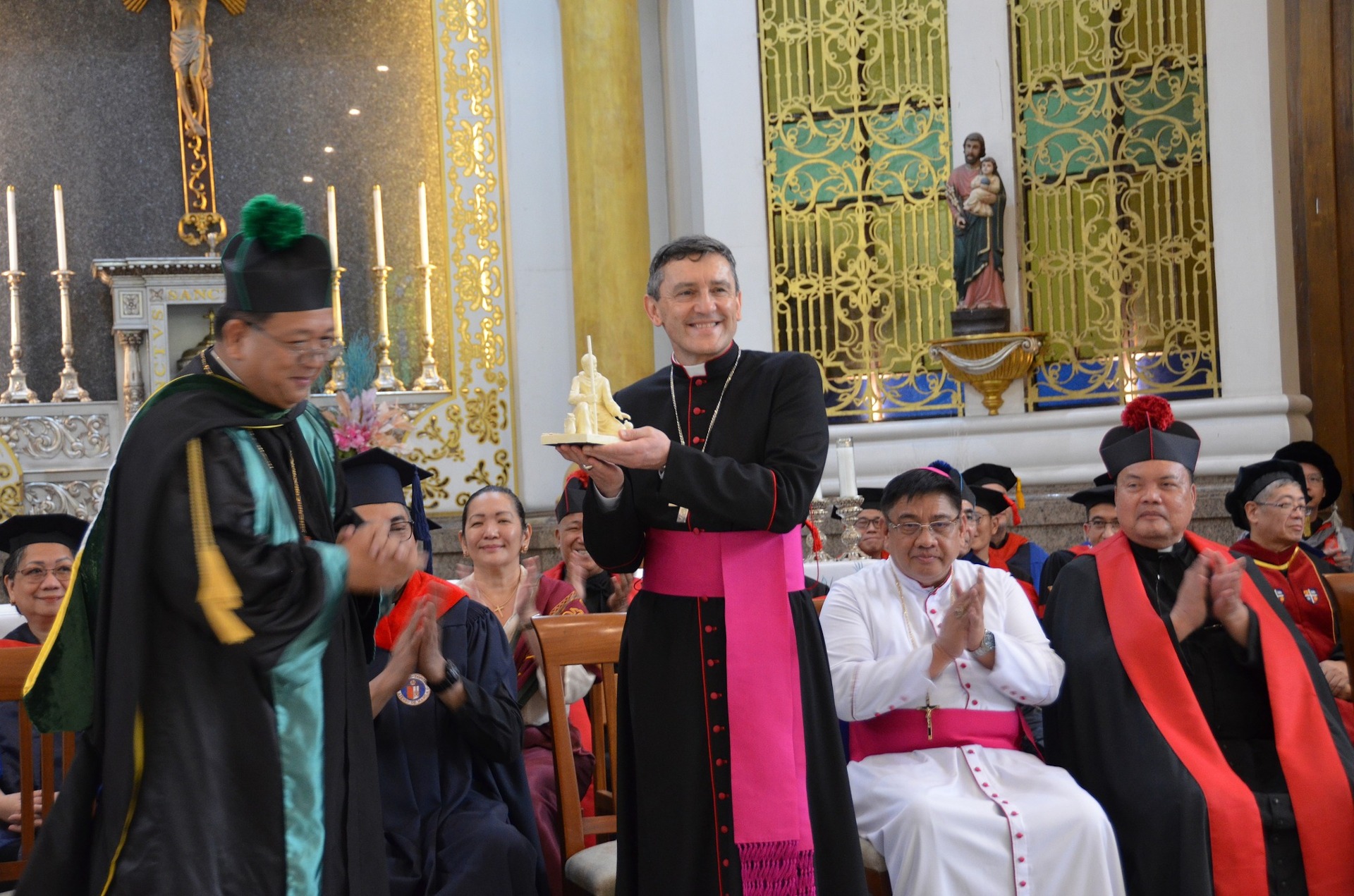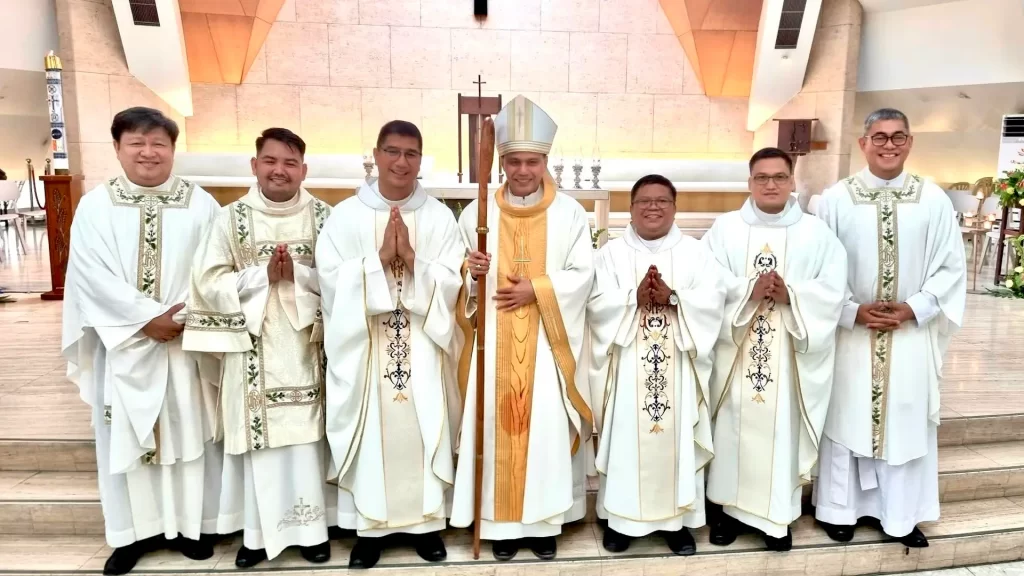
As this year’s LST Student Council President, I was blessed with the opportunity to accompany Archbishop Pagazzi throughout his visit. At first, I expected him to be formal given his role as a Vatican official. However, I quickly realised it was the opposite, as he carried himself with a warmth and humility that made everyone feel at ease. As I walked alongside him in various moments, I witnessed firsthand his deep interest in our faith, culture, and formation. His genuine curiosity and appreciation for our local traditions, expressions of devotion, and theological perspectives reflected his openness to learning from the people he encountered.
A Journey of faith and culture
The Archbishop’s visit was marked by profound encounters—not only with academic institutions but with the lived faith of the Filipino people. One of the most moving moments was our visit to the Minor Basilica and National Shrine of the Black Nazarene, where he concelebrated Mass. There, amidst the sea of faithful devotees, I saw him pause in awe at the depth of Filipino spirituality. He witnessed people from all walks of life—young and old, rich and poor—who were united in their devotion to the Black Nazarene as their hands were raised in supplication. After the Mass, he shared how deeply moved he was by the resilience and unwavering faith of the devotees.
His itinerary was a rich tapestry of engagement, seamlessly weaving through historical, theological, and pastoral spaces. From the grandeur of the Manila Cathedral and San Agustin Church to the academic halls of LST and the University of Santo Tomas (UST), and from the quiet pastoral outreach in Angono and Antipolo, each moment invited reflection and dialogue.
What struck me most was his remarkable ability to connect with people, despite the limitations of his English. Whether speaking with artists, seminarians, bishops, educators, or lay leaders, he took the time to listen intently and engage meaningfully. His message remained clear and consistent: theology must serve life, and education must lead to mission.

One of the highlights of his visit was the Special Academic Convocation at LST, where he addressed faculty and students. He spoke of the essential role of theological institutions in shaping the future of the Church, emphasising that the pursuit of knowledge must always be anchored in service and compassion. His words challenged us to see theology not as an intellectual exercise but as a living dialogue between faith and the world.
During his tour of LST and its partner institutions: CEFAM, Emmaus Center, Center for Ignatian Spirituality, San Jose Seminary, and the East Asian Pastoral Institute, he engaged in meaningful conversations about formation, spirituality, and the evolving needs of the Church. He showed genuine interest in the work being done to bridge academic learning with pastoral application. It was affirming to see that the vision we uphold at LST aligns with the Church’s broader call to form leaders who are both intellectually grounded and pastorally engaged.
A particularly memorable moment was during the LST Alumni Homecoming Dinner, where Archbishop Pagazzi had the opportunity to witness the beauty of diverse cultures through performances by LST’s Vietnamese and African students, the Dragon Dance by Xavier School students, and traditional Filipino dances by the Marikina Dance Guild. Seeing his delight and amazement at these expressions of faith and culture was a reminder that the Church is truly universal, enriched by the gifts of different peoples and traditions.
A Call to Deeper Commitment
As I reflect further, I realise that his visit was not just a series of events; it was an invitation for all of us at LST to reflect on our own journeys. As students of theology, we often get caught up in the demands of our studies, but his presence reminded us of the bigger picture—that our learning is meant to prepare us for real encounters with people, with cultures, and with the challenges of the modern world.
One particular moment that stood out for me was during the LST liturgical reception and dinner, where he took the time to speak with students personally. Instead of simply offering formal remarks, he asked about our experiences, our challenges, and our hopes for the future. It was a powerful reminder that leadership in the Church is not about titles or positions but about relationships and genuine accompaniment. I am grateful for the wisdom he shared, the encouragement he offered, and the witness he gave. His presence was a reminder that our vocation is not just about what we know, but about who we become in the service of Christ and His Church. His final words to us before departing echoed in my heart: “Walk with faith, teach with love, and lead with humility.” His words carried not only theological insight but also a pastoral heart that encouraged us to embrace both the rigour of our studies and the humility of service. That, I believe, is the path we are all called to take.
Archbishop Pagazzi’s visit reminded us that our mission does not end within the walls of our classrooms but extends to every parish, community, and person we are called to serve. His presence was more than an official visit—it was a gift, a moment of grace that calls us to a deeper sense of purpose.
It was also a personal encounter with a shepherd who truly listened, engaged, and journeyed with us in faith. He is not merely an esteemed Vatican official but a presence of wisdom and kindness, reminding us that the pursuit of theology is not just an intellectual endeavour but a call to serve with compassion, openness, and a deep love for Christ and His Church.







